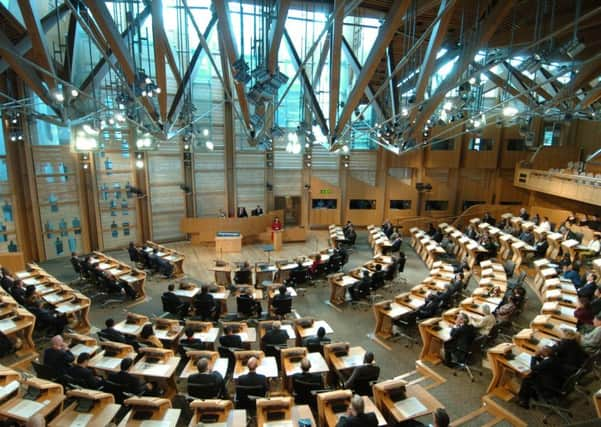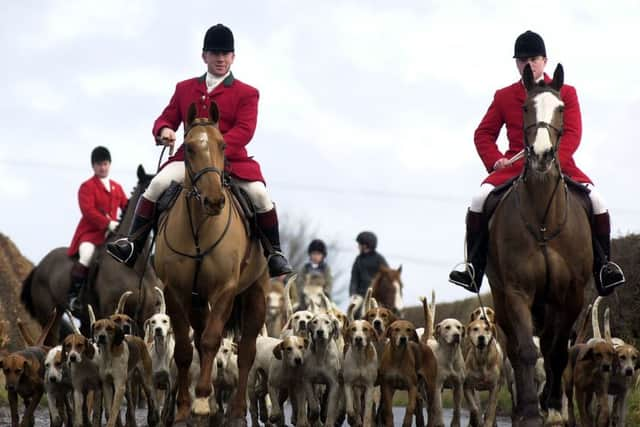Scottish Parliament’s unique approach is key to Scotland’s success – Craig Vickery


The Scottish Parliament has achieved many policy successes in diverging from laws in the rest of the UK since 1999.
Most recently, minimum alcohol pricing has led to a sharp fall in drink sales, according to NHS Scotland research published this month.
Advertisement
Hide AdAdvertisement
Hide AdThe success of minimum unit pricing will lead to calls for the policy to be introduced across Britain, after Scotland became the first country in the world to introduce such a policy in May last year.


In 2005, Scotland’s lawmakers also led the way by becoming the first part of the UK to ban smoking in bars, restaurants and all public places. After extensive consultation and evidence from leading charity organisations working with local academics, Holyrood rolled out legislation that would have a transformative effect on public spaces across the nation.
The Parliament has also been able to be more nimble in legislating on other controversial and contentious areas such as fox hunting and to remove road bridge tolls in 2008.
And smacking children has been made illegal in Scotland after a vote in the Scottish Parliament last week – making it the first country in the UK to make smacking a criminal offence.
Holyrood is designed – at least in theory – for collaboration, partnerships and connectivity.
The electoral system was originally crafted to avoid one single party forming a government with less than half the votes cast. At the time, most people were looking to introduce a more proportionate system which would closely reflect the views of the people of Scotland and produce a fairer match between the way people voted and the number of MSPs each party got elected.
Scotland’s additional-member system (AMS) is seen as a compromise between the Westminster-style first-past-the-post and full proportional representation systems used on the European continent.
Adversarial Westminster system
In practice, we have seen Labour and Liberal Democrat representations form partnerships for the Parliament’s first two terms, and more unofficial arrangements between the SNP and Greens in recent years.
Advertisement
Hide AdAdvertisement
Hide AdAnother way the Holyrood Parliament is more conducive to co-operation, in contrast with the more adversarial Westminster system, is how the day is structured. Committee sessions are always held in the morning and plenary sessions take place in the afternoon – meaning that MSPs do not face a time conflict by having to be in two places at the same time.
The Scottish Parliament also has fantastic connectivity and access points for its citizens to engage with and influence its policymaking processes. It is specifically required to openly consult with the people on draft policy proposals, facilitating better engagement opportunities for charities and citizens. This legislative process is based on the idea that the people of Scotland from all walks of life, pressure groups, and regions should participate to ensure openness and encourage connectivity, though it is not just within the confines of its chambers that Scottish institutions look to break new ground and forge connections. New partnerships can realise greater public value and offer a new gateway to engage with wider international civil society.
Take the V&A’s new museum in Dundee – the first-ever dedicated design museum in Scotland and the only other Victoria and Albert museum anywhere in the world outside London. The imposing campus presents the brilliance of Scottish creativity and the best of design from around the world – and underlines its soft-power success story with an appearance on the silver screen in HBO’s newest hit US drama series Succession, starring Dundee’s own Brian Cox.
Queen’s friendship and support
Holyrood’s Programme for Government reflects this vital status of Scottish creative industries but policymakers must seek out this ‘power of attraction’ across all areas of industry.
The ‘Scotland is Now’ Campaign must encourage small and medium businesses to broaden their international perspectives and stay alive to international business and investment opportunities.
As the world’s most forward-thinking professional accountancy body, ACCA recognises the power of connections and the importance of collaboration and working together in creating a consensus in policymaking. With 10,000 members and students in Scotland alone, our qualifications offer them and those around the world the opportunity to enhance their employability by acquiring essential leadership, team working, communications, stakeholder management and networking skills.
Marking the 20th anniversary of the Scottish Parliament in June, HM the Queen delivered a speech to MSPs in the chamber – celebrating its achievements and the themes of tradition, continuity and nostalgia, continuing her history of giving the legislature messages of friendship and support.
Addressing the newly elected MSPs in July 1999 as the Parliament received its legal powers, the Queen spoke about the start of a new constitutional age, and the importance of channelling the energy of the young and being open and accessible to serve all the people of Scotland.
Advertisement
Hide AdAdvertisement
Hide AdThese messages still resonate today, and as Holyrood secures more devolved powers in the years ahead, including additional tax raising powers, it will inevitably face added responsibilities and the scrutiny that comes with this.
But as Scotland’s elected representatives have demonstrated for the past two decades, it is only by forming partnerships, working together, becoming connected with industry, institutional soft-power leaders and the electorate that the body can succeed as it aims to deliver a pioneering globally collaborative exercise in democracy.
Craig Vickery is the head of accountancy body ACCA Scotland
